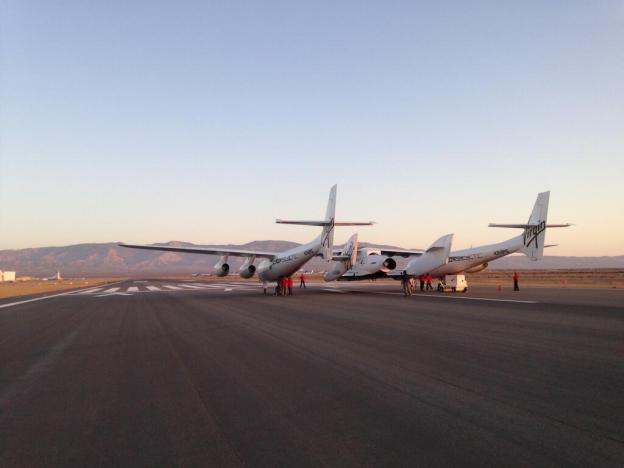
Today marks Virgin Galactic’s official test flight date for its first rocket-powered plane capable of taking tourists to space. Of course, at a hefty price tag of $200,000 a seat.
In a blog post today, Virgin founder Richard Branson announced that the flight is ready for its test launch, and is expected to break the speed of sound. “This is a momentous day and the single most important flight test to date for our Virgin Galactic program,” he wrote. “It marks the moment when we put together two key elements of our spaceflight system – the spacecraft and its rocket motor, which have both been tested extensively by themselves over several years – and start the phase of testing that will demonstrate our vehicle’s ability to go to space (hopefully later this year).”

Pilots Stucky and Alsbury confirm: SpaceShipTwo exceeded the speed of sound on today’s flight! Photos, video, and details to follow
— Virgin Galactic (@virgingalactic) April 29, 2013
Virgin Galactic’s SpaceShipTwo is designed to be a brief passenger service flight, with an exclusive room of six seats (plus two for the pilots) per flight. At least 500 passengers have already booked their trip to space, including actor Ashton Kutcher who bought the flight’s 500th ticket. If the project commences as scheduled, the first commercial flight will take off by next year from the Spaceport America facility in southern New Mexico.
“Like our hundreds of customers from around the world, my children and I cannot wait to get on board this fantastic vehicle for our own trip to space and am delighted that today’s milestone brings that day much closer,” Branson wrote.
Editors' Recommendations
- SpaceX slow-motion video shows powerful Raptor rocket engine shutting down
- SpaceX shares awesome rocket imagery from Starship flight
- How to watch SpaceX launch the third flight of its Starship rocket on Thursday
- SpaceX sets target date for third test of world’s most powerful rocket
- SpaceX is gearing up for a record-breaking rocket flight


